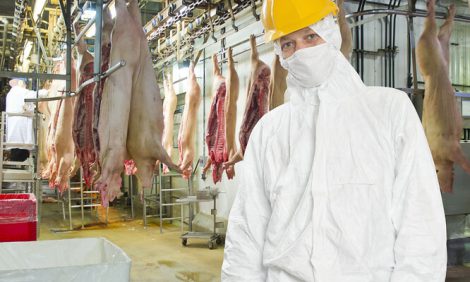



New Warning of Human Impacts of Antibiotic Resistance from Poultry
GLOBAL - Experts have described the number of avoidable human deaths and the costs of health care potentially caused by third-generation cephalosporin use in food animals as "staggering" and are calling for a global ban on their use, particularly in hatcheries.In a letter to the journal, Emerging Infectious Diseases entitled 'Human Deaths and Third-Generation Cephalosporin use in Poultry, Europe', the experts say: "The number of avoidable deaths and the costs of health care potentially caused by third-generation cephalosporin use in food animals is staggering. Considering those factors, the ongoing use of these antimicrobial drugs in mass therapy and prophylaxis should be urgently examined and stopped, particularly in poultry, not only in Europe, but worldwide."
Globally, lead author, Peter Collignon of The Canberra Hospital in Australia and co-authors explain that antimicrobial drug resistance is rapidly rising, with resultant increased illness and death. Of particular concern is Escherichia coli, the most common bacterium to cause invasive disease in humans. In Europe, increasing proportions of bloodstream infections caused by E. coli are resistant to third-generation cephalosporins.
Dr Collignon's co-authors are F.M. Aarestrup (EU Reference Laboratory for Antimicrobial Resistance, Denmark), R. Irwin (Public Health Agency of Canada) and S. McEwen (Ontario Veterinary College/University of Guelph, Canada).
Resistant E. coli can be transmitted to humans from animals and they state that a large proportion of resistant isolates causing human infections are derived from food animals.
Recent Dutch data makes it possible to quantify the proportion of antimicrobial drug-resistant E. coli infecting persons through food sources and the resultant effects on human health, they say.
From this data, they have calculated that in the Netherlands, infections in humans with third-generation cephalosporin–resistant E. coli (G3CREC) derived from poultry sources were associated with 21 additional deaths and 908 hospital bed-days needed to treat persons with these antimicrobial drug resistant bloodstream infections.
Extrapolating these figures for all of Europe, Collignon and co-authors estimate that 1,518 additional deaths and an associated increase of 67,236 days of hospital admissions would be counted as a result of cephalosporin and other antimicrobial drug use in poultry.
The group expresses its concern that these figures could be under-estimated owing to a lack of accurate data in many countries and the fact that G3CREC is rapidly rising in many countries.
Billions of chickens receive third-generation cephalosporins in-ovo or as day-old chicks to treat E. coli infection, they say, a practice that has resulted in large reservoirs of resistant bacteria.
According to the authors, this practice has been associated with substantial increases in resistance to third-generation cephalosporins in Salmonella enterica serovar Heidelberg isolates detected in humans in Canada. In the US, the Food and Drug Administration has recently prohibited the off-label use of cephalosporins, including prophylactic uses, in major food animal species, including poultry.
Reference
Collignon P., Aarestrup F.M., Irwin R. and McEwen S. 2013. Human deaths and third-generation cephalosporin use in poultry, Europe (letter). Emerg. Infect. Dis. 7 August 2013. http://dx.doi.org/10.3201/eid1908.120681








